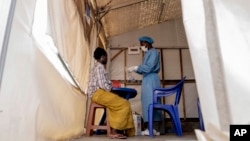Mpox, formerly known as Monkeypox, is a viral disease that is endemic in Central and West Africa. It is zoonotic, meaning it can spread between animals and people. It spreads through close physical contact.
There are two variants of the virus, Clade I and Clade II. The Clade II variant generally causes a mild illness and most people who become infected recover without treatment.
The Clade I variant, however, is more serious. It has a fatality rate of 3 to 4 percent but has been known to kill as many as 10 percent of those infected with it.
A global outbreak of Mpox II began in 2022 and continues today. Then, earlier this year, a new form of the deadlier, Mpox I variant emerged in the Democratic Republic of Congo.
On August 14, The World Health Organization declared the Mpox I outbreaks, particularly in the DRC, to be a global emergency. Numerous cases of the new variant of the disease have been confirmed among children and adults in more than a dozen countries, including in Burundi, Kenya, Rwanda and Uganda, all of them neighbors of the DRC.
The Mpox virus is in the same family as smallpox, and smallpox vaccines have been found to be effective against Mpox I. This means that adults, particularly those over the age of 50 who have been vaccinated against smallpox may have some immunity. But that is not true of children and young adults, who make up the largest age groups in sub-Saharan Africa.
The World Health Organization anticipates that a sum of $15 million will be required to start the effort to combat Mpox. The United States is stepping up. On August 20, the U.S. government announced that, working through USAID, it will contribute $35 million in emergency health assistance to bolster response efforts for the clade I Mpox outbreak. This new commitment brings the total U.S. government response to the Mpox I outbreak to more than $55 million.
As part of this package, the DRC, which is the most severely affected country, will receive 50,000 doses of Jynneos Mpox vaccine, as well as resources to support vaccine readiness and delivery.
The United States remains committed to a comprehensive, whole-of-government response to this growing outbreak, and we call on other donors to join us in these critical efforts.






